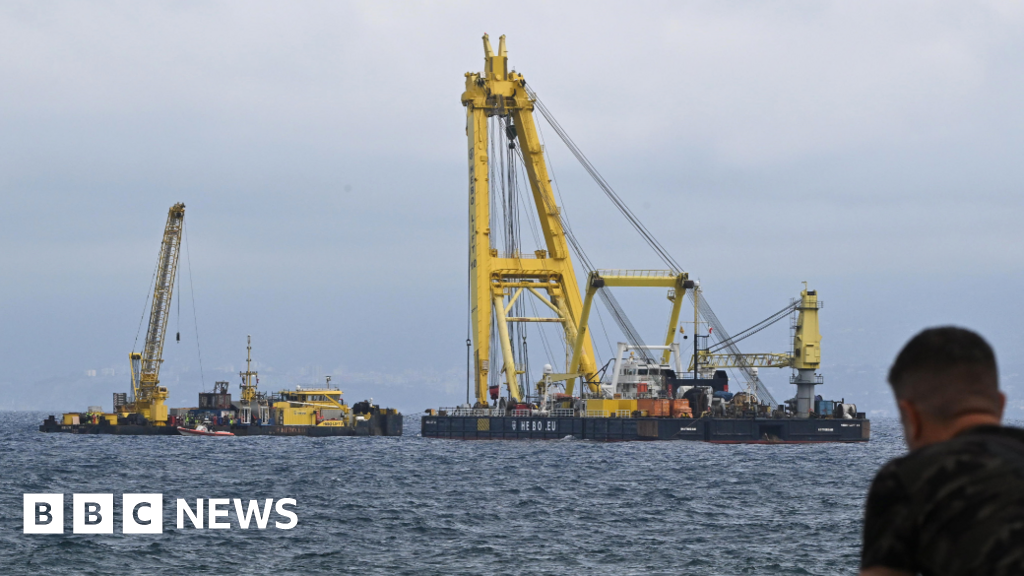A Volkswagen emblem, attached to a tower at the Volkswagen Osnabrück GmbH plant, can be seen behind a red traffic light.
Picture Alliance | Picture Alliance | Getty Images
Europe's auto giants slipped on Wednesday morning, extending recent losses as U.S. President Donald Trump's sweeping tariffs on dozens of countries came into effect — including a whopping 104% levy on China.
Trump's latest trade measures, which came into force as of 5 a.m. London time, include a 20% tariff on the European Union, a 24% tariff on Japan and a 49% levy on Cambodia.
These "reciprocal" measures will be applied separately and not on top of existing U.S. auto tariffs, according to S&P Global.
Last Thursday, the Trump administration implemented a 25% charge on all foreign cars imported into the U.S. The White House said it also intends to place tariffs on some auto parts no later than May 3.
Shares of French car parts supplier Valeo traded down 4.3% on Wednesday morning, tumbling toward the bottom of the pan-European Stoxx 600 index.
Germany's Volkswagen, Mercedes-Benz Group and BMW fell as much as 3%, before paring losses, with the latter notching a fresh 52-week low.
In Asia, Japan's Nissan and Toyota fell 7% and 2.6%, respectively, on Wednesday.
Analysts warn that German car manufacturers are likely to be the most exposed to the U.S. trade measures.
"The tariffs are a blow for especially the German car makers which export hundreds of thousands of units to the US annually (749,000 in 2024) and produce many cars in the US itself which require European parts," Rico Luman, senior sector economist for transport and logistics at Dutch bank ING, told CNBC in emailed comments.
"It's hard to work around the tariffs, and they seem to stay at least a while, so they need to deal with it and will have to reconsider product offerings, pricing and manufacturing footprints," he added.
China's foreign ministry on Wednesday responded to the latest U.S. levies by pledging to take "resolute and forceful" measures to protect its own interests.
An escalating trade war is expected to have a profound impact on the global car industry, particularly given the high globalization of supply chains and the heavy reliance on manufacturing operations across North America.
In the days since Trump's auto tariffs came into effect, car giants have responded by announcing plans to raise prices, impose import fees, pause shipments, idle plants and even lay off staff.
A logo outside the BMW AG showroom in Madrid, Spain, on Friday, March 28, 2025.
Bloomberg | Bloomberg | Getty Images
ING's Luman said that, while a drop in U.S. unit sales will likely hurt German carmakers amid an already complex set of challenges, this picture "doesn't look dramatic" just yet.
"China is indeed even more important, and their home market require more attention," Luman said. "I would say that bolstering competitive strength and selling more cars in the European home market (and perhaps develop other export markets across the world) will be the focus."
Tariff exposure
"BMW and Mercedes are among the top exporters of cars by value from the US, thus the most exposed to retaliatory tariffs among the European automakers," Rella Suskin, equity analyst at Morningstar, told CNBC by email.
She added that both companies could face double tariffs on vehciles manufactured in Mexico and Canada.
"However, we think most of the models that these companies manufacture in Mexico or Canada can easily be substituted with vehicles imported from Europe, which attract only the worldwide 25% auto tariff," she added.











 English (US) ·
English (US) ·